- News
- Reviews
- Bikes
- Components
- Bar tape & grips
- Bottom brackets
- Brake & gear cables
- Brake & STI levers
- Brake pads & spares
- Brakes
- Cassettes & freewheels
- Chains
- Chainsets & chainrings
- Derailleurs - front
- Derailleurs - rear
- Forks
- Gear levers & shifters
- Groupsets
- Handlebars & extensions
- Headsets
- Hubs
- Inner tubes
- Pedals
- Quick releases & skewers
- Saddles
- Seatposts
- Stems
- Wheels
- Tyres
- Tubeless valves
- Accessories
- Accessories - misc
- Computer mounts
- Bags
- Bar ends
- Bike bags & cases
- Bottle cages
- Bottles
- Cameras
- Car racks
- Child seats
- Computers
- Glasses
- GPS units
- Helmets
- Lights - front
- Lights - rear
- Lights - sets
- Locks
- Mirrors
- Mudguards
- Racks
- Pumps & CO2 inflators
- Puncture kits
- Reflectives
- Smart watches
- Stands and racks
- Trailers
- Clothing
- Health, fitness and nutrition
- Tools and workshop
- Miscellaneous
- Buyers Guides
- Features
- Forum
- Recommends
- Podcast
review
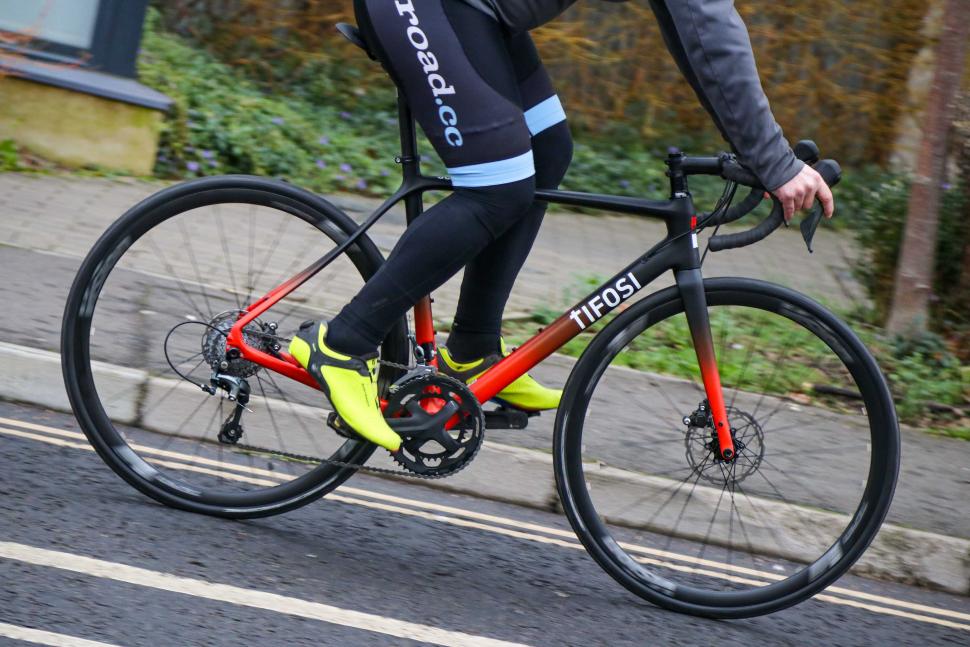 2021 Tifosi Scalare - riding 1.jpg
2021 Tifosi Scalare - riding 1.jpg£1,999.00
VERDICT:
Carrying some weight and could do with a wheel upgrade, but a good ride quality and stiffness overall
Comfortable frame
Endurance-based geometry makes it easy to ride quickly
Tiagra mechanical/hydraulic groupset works very well
Not the lightest road bike for the money
Lower spec than some similarly priced rivals
Weight:
9,300g
Contact:
At road.cc every product is thoroughly tested for as long as it takes to get a proper insight into how well it works. Our reviewers are experienced cyclists that we trust to be objective. While we strive to ensure that opinions expressed are backed up by facts, reviews are by their nature an informed opinion, not a definitive verdict. We don't intentionally try to break anything (except locks) but we do try to look for weak points in any design. The overall score is not just an average of the other scores: it reflects both a product's function and value – with value determined by how a product compares with items of similar spec, quality, and price.
What the road.cc scores meanGood scores are more common than bad, because fortunately good products are more common than bad.
- Exceptional
- Excellent
- Very Good
- Good
- Quite good
- Average
- Not so good
- Poor
- Bad
- Appalling
The Scalare Disc from Tifosi is an endurance-style road bike based around a good quality carbon frameset, that's capable of being upgraded from the entry to mid-level finishing kit fitted here. The ride quality is impressive, as is the stiffness, but for the money there is some stiff competition on the market.
> Buy now: Tifosi Scalare Disc for £1,999 from Tifosi
If you are after a new road bike, do check our best road bikes buyer's guide, which includes machines from a modest £300 to a more wallet-worrying £13,000.
Ride
Ignoring price lists and specification sheets for now, the Scalare is a fun bike to ride with a geometry that's relaxed compared to that of a full-on race bike, which makes it easy to ride at speed, with no surprises or twitchiness at the front end. And it's pleasingly comfortable too.
However, it's the not the most responsive bike around. And a good deal of that is down to the fact that a noticeable chunk of that 9.3kg weight is the wheelset, which takes away some of the nimbleness that the shortish wheelbase provides – though once you are up to speed you can really fling it around through the bends and enjoy the ride.
Once off the line it changes speed without huge amounts of effort and thanks to the stiffness from the lower half of the frame it feels tight, and in no ways sluggish should you really put the power down for a bit of a sprint.
The head angle isn't too aggressive, which stops the handling from being overly sensitive, so it's a bike that will flatter riders of any ability in the corners, although if you an experience rider who likes high-speed descents, you might find it a little subdued.
It tracks nicely through the bends, though, and isn't really unsettled on rough road surfaces, in part due to that overall weight which adds to its planted feel.
In terms of frame size, the head tube lengths don't make the front end overly tall, which allows you to get into a decent racer's tuck for riding into the wind, or on technical descents. This allows you to lower your centre of gravity, giving it a more positive feel in quick corners.
Plus, you can get out of the wind on long drags without having to stretch your back too much.
The frame and fork provide a comfortable ride. It's not the most refined bike I've ever ridden but it doesn't feel overly buzzy and there is a good amount of shock absorbency without having to run the tyres too soft.
The curved seatstays bring a small amount of flex to boost that comfort, which I could feel when seated, although that flex isn't detrimental to power output when I was pushing hard on the pedals.
At the front end the fork feels tight and coped absolutely fine when cornering hard, and there wasn't any noticeable flex when braking hard going into a corner.
Overall, from a ride point of view there is a lot to like. It doesn't scream 'exceptional' from any one direction, but it has the basis of a competent road frameset that is ideal for all kinds of riding, including entry-level racing.
Frame and Fork
Tifosi describes the Scalare as having an entry-level carbon fibre frame constructed from Toray's T500 and T700 grades of carbon.
As I've mentioned above that gives a ride quality that copes with most terrains and doesn't disappoint on the stiffness front.
I can't fault the quality of the build either. It looks well finished, and while the matt finish gives the Scalare a functional look rather than a bling one, it is at least hardwearing.
As is the norm these days, all the cable, hose and/or wiring runs internally through the frame from the top of the down tube, so the Tifosi will look clean and simple with both electronic and mechanical groupsets.
Bearing in mind that this is intended for racing and fast riding, it's no surprise to find moderate tyre clearances, with room for rubber no wider than 28mm. That said, Tifosi has included mudguard mounts should you want to press the Scalare into winter training or really quite racy commuter duties.
These aren't in the traditional places, so you might need to fettle the mudguard stays before fitting them. With the 28mm tyres fitted clearance looks tight, so I think it is safe to say you'll need to drop down to 25mm tyres if you're fitting fenders.
Other than that, you are getting twin bottle cage mounts and front and rear thru-axles.
The profile of the carbon frame follows a common theme with a narrow top tube (after it heads away from the high load areas of the tapered head tube) and those seatstays for comfort, while the down tube is boxy and of a decent sized diameter.
The bottom bracket area is large as it creates a junction between the down tube and seat tube, which allows for larger chainstays, increasing stiffness when you put the power through the drivetrain.
For a medium sized frame, the geometry kicks off with a 544mm top tube, 530mm seat tube, and a 140mm head tube.
The seat angle comes in at 73.5°, while the head angle is a little slacker at 72.25°.
The stack and reach figures are 543mm and 384mm respectively. Tifosi has managed to keep the overall wheelbase length at 982mm, which is short for a disc brake-equipped road bike as disc hubs increase the width at the dropouts.
On shorter stays they have to splay out quite quickly which can cause your heel to catch the chainstay as you pedal, but I had no issues with that on the Tifosi.
Finishing Kit
The Scalare comes with a near-full Tiagra groupset, which delivers mechanical gear shifting and hydraulic braking. It's a 10-speed system pairing an 11-34 cassette with a compact 50/34T chainset.
This gives a good spread of gears at both ends of the range, although the cassette can feel a little gappy at times, with biggish jumps between the larger sprockets.
The Tiagra components mimic Shimano's latest mechanical 105 11-speed groupset – one step up in the Shimano line-up – in terms of ergonomics and aesthetics, plus the performance is pretty much identical too.
The shifting feels crisp and precise up and down the cassette whether under load.
And it is the same with the front lever moving the chain across the twin chainrings of the FSA Omega chainset.
The Scalare's braking features a 160mm diameter front rotor and 140mm rear. Once bedded in the pad and rotor combination provided a decent amount of bite and impressive stopping power. Not quite the same amount of modulation as you'll find on Shimano's higher-end setups, but a massive step up compared to cable-operated systems.
Wheel-wise the Scalare is wearing a set of Vision Team 30 TLRs that have a 30mm-deep aluminium alloy rim with 24-spokes front and rear.
They aren't light, and that is noticeable when you're accelerating or climbing, but they are dependable and stiff, which makes them ideal for training or winter riding. For any kind of performance riding, you will want to factor in an upgrade at some point to something lighter.
I had no issues with durability, though, with both the wheels remaining true and tight throughout testing.
Wrapped around the rims is a set of IMPAC RacePac 28mm tyres. These are quite basic with a rigid wire-beaded design and a modest 24 threads per inch weave, but the ride quality they deliver is decent enough. Their rubber compound is quite hard, though, so the grip is average, and the rubber's rigidity impacts on the amount of feedback coming through.
I'd say the tyres are decent performers for their sub-£20 price, with decent puncture protection and reasonable rolling resistance.
Tifosi-branded alloy components finish off the rest of the build covering the handlebar, stem and seatpost.
It's all basic stuff but does the job and the dimensions of the handlebar reflected the frame size well.
The Selle Italia Model X Superflow saddle is slender like a true road seat, and I found it relatively comfortable. I liked its minimalist shape and padding that gives a firm and direct feel to the bike, with just enough flex in the hull to prevent it feeling overly harsh.
Value
I actually tested the Scalare back at the beginning of 2022 when it was priced at £1,849, though at that point it wasn't in stock – hence the review running now. Since then the price has jumped to £1,999, the sort of rise that isn't unusual these days.
That said, the Scalare's specification is on the low end of things for the money.
For instance, Vitus's Zenium CRS features with a carbon frameset, lightweight Prime Barouder wheels and Schwalbe's One Performance tyres for the same money – oh, and a full Ultegra mechanical groupset.
The Ribble R872 Disc is available for just £1,699 in a 'Sport' build that incorporates a T700/T800 carbon fibre frameset with an upgrade to a hydraulic Tiagra discs, the same chainset as the Scalare and Mavic Aksium wheels. Mat tested an earlier version, very largely the same, and rated it very highly.
The latest version of Giant's Defy Advanced 3 costs £2,349 (it was £2099 when Mat reviewed it in 2021) and also features a hydraulic Tiagra groupset and a carbon frameset, so is a chunk more expensive than the Tifosi. It has clearance for 35mm tyres though.
Conclusion
The Scalare Disc is pushed hard on price by some brands considering the spec list, but on the whole it's still a worthy contender if you are looking for an entry-level road bike with a frame of a high enough quality that you could upgrade over time. A lighter set of wheels would be the first place to start.
Verdict
Carrying some weight and could do with a wheel upgrade, but a good ride quality and stiffness overall
road.cc test report
Make and model: Tifosi Scalare Disc Tiagra
Size tested: L, 56cm
About the bike
List the components used to build up the bike.
Drivetrain: 10x Disc Brake
Shifters: Shimano Tiagra 10x Disc
Front Derailleur: Tiagra Front Mech Braze On
Rear Derailleur: Tiagra Rear Mech
Brakes: Shimano Tiagra Hydraulic
Rotors: Tektro TR160-35 (front) / TR140-35 (rear)
Cassette: Shimano Tiagra 10x 11/34T
Chainset: FSA Omega Chainset 34/50T
Chain: KMC X10
Wheels: Tubeless Ready Vision Team 30 TLR
Tyres: IMPAC RacePac 700x28c
Handlebar: Tifosi Alloy
Seatpost: Tifosi Alloy
Stem: Tifosi Alloy
Saddle: Selle Italia Model X Superflow
Bottom Bracket: 86.5x41mm
Tell us what the bike is for and who it's aimed at. What do the manufacturers say about it? How does that compare to your own feelings about the bike?
Tifosi says: "The Scalare is an entry level carbon fibre road bike but with the feel and benefits normally only associated with much higher end models. Whether you are an all-day sportive rider or entering your first amateur race, the Scalare will be your perfect partner."
It has the basis of being a capable road bike for all kind of riding disciplines, although the quicker you want to be, the more urgent the tyre and wheel upgrades become.
Where does this model sit in the range? Tell us briefly about the cheaper options and the more expensive options
This is currently the only model in Tifosi's Scalare range.
Frame and fork
Overall rating for frame and fork
7/10
Tell us about the build quality and finish of the frame and fork?
It's an all-round good quality build and the matt finish is durable.
Tell us about the materials used in the frame and fork?
The frame is made from Toray T500 and T700 grade carbon fibres, while the fork is full uni-directional carbon fibre.
Tell us about the geometry of the frame and fork?
The geometry is slightly more relaxed than a full-on race bike's geometry, but the Scalare's short wheelbase keeps it feeling nimble.
How was the bike in terms of height and reach? How did it compare to other bikes of the same stated size?
The stack and reach figures are mentioned in the review, and there's nothing out of the ordinary in terms of the numbers.
Riding the bike
Was the bike comfortable to ride? Tell us how you felt about the ride quality.
On the whole the ride is comfortable with the frame and fork doing a decent job of muting some of the road vibration.
Did the bike feel stiff in the right places? Did any part of the bike feel too stiff or too flexible?
Overall, stiffness levels are good especially around the bottom bracket area.
How did the bike transfer power? Did it feel efficient?
There is a good spread of gears for efficiency, although the cassette can feel a little on the gappy side.
Was there any toe-clip overlap with the front wheel? If so was it a problem?
No
How would you describe the steering? Was it lively neutral or unresponsive? Neutral
Tell us some more about the handling. How did the bike feel overall? Did it do particular things well or badly?
The front end feels quite relaxed, so the steering isn't massively quick, which makes it an easy bike to ride, and should help your confidence if you're not comfortable descending,
Which components had the most effect (good or bad) on the bike's comfort? would you recommend any changes?
I liked the minimal padding and race shape of the saddle.
Which components had the most effect (good or bad) on the bike's stiffness? would you recommend any changes?
The wheels are sufficiently stiff for larger riders and for when you put in big efforts.
Which components had the most effect (good or bad) on the bike's efficiency? would you recommend any changes?
Lighter wheels would make acceleration and climbing easier.
Rate the bike for efficiency of power transfer:
8/10
Rate the bike for acceleration:
7/10
Rate the bike for sprinting:
7/10
Rate the bike for high speed stability:
7/10
Rate the bike for cruising speed stability:
8/10
Rate the bike for low speed stability:
8/10
Rate the bike for flat cornering:
8/10
Rate the bike for cornering on descents:
8/10
Rate the bike for climbing:
7/10
The drivetrain
Rate the drivetrain for performance:
8/10
Rate the drivetrain for durability:
8/10
Rate the drivetrain for weight:
7/10
Rate the drivetrain for value:
6/10
Tell us some more about the drivetrain. Anything you particularly did or didn't like? Any components which didn't work well together?
The Tiagra groupset shifts well and offers plenty of braking power at a decent price.
Wheels and tyres
Rate the wheels for performance:
6/10
Rate the wheels for durability:
8/10
Rate the wheels for weight:
5/10
Rate the wheels for comfort:
6/10
Tell us some more about the wheels.Did they work well in the conditions you encountered? Would you change the wheels? If so what for?
The wheels are heavy, but reliable.
Rate the tyres for performance:
6/10
Rate the tyres for durability:
8/10
Rate the tyres for weight:
5/10
Rate the tyres for comfort:
7/10
Tell us some more about the tyres. Did they work well in the conditions you encountered? Would you change the tyres? If so what for?
Hardwearing tyres, but weighty and offer average grip.
Controls
Rate the controls for performance:
7/10
Rate the controls for durability:
8/10
Rate the controls for weight:
7/10
Rate the controls for comfort:
7/10
Tell us some more about the controls. Any particularly good or bad components? How would the controls work for larger or smaller riders?
Basic aluminium kit that works well.
Your summary
Did you enjoy riding the bike? With lighter wheels and tyres, yes.
Would you consider buying the bike? Possibly – but it is pushed on price by some other brands' bikes.
Would you recommend the bike to a friend? Maybe
How does the price compare to that of similar bikes in the market, including ones recently tested on road.cc?
Ribble offers a similar level of frame, fork and build for £1,699 and Vitus specs its Zenium model with Ultegra – two steps up Shimano's groupset hierarchy – for the same money as the Tifosi. That said, a Giant will cost you a little bit more than the Tifosi for a similarly equipped bike
Rate the bike overall for performance:
7/10
Rate the bike overall for value:
4/10
Use this box to explain your overall score
It's a bit on the weighty side and components like the wheels and tyres don't really flatter the performance, but the geometry is easy to live with and it's a comfortable bike to ride. With a few upgrades it's a capable entry-level race bike.
About the tester
Age: 44
I usually ride: This month's test bike My best bike is: B'Twin Ultra CF draped in the latest bling test components
I've been riding for: Over 20 years I ride: Every day I would class myself as: Expert
I regularly do the following types of riding: time trialling, commuting, club rides, sportives, fixed/singlespeed,
Since writing his first bike review for road.cc back in early 2009 senior product reviewer Stu has tested more than a thousand pieces of kit, and hundreds of bikes.
With an HND in mechanical engineering and previous roles as a CNC programmer/machinist, draughtsman and development engineer (working in new product design) Stu understands what it takes to bring a product to market. A mix of that knowledge combined with his love of road and gravel cycling puts him in the ideal position to put the latest kit through its paces.
He first made the switch to road cycling in 1999, primarily for fitness, but it didn’t take long for his competitive side to take over which led to around ten years as a time triallist and some pretty decent results. These days though riding is more about escapism, keeping the weight off and just enjoying the fact that he gets to ride the latest technology as part of his day job.
Latest Comments
- Jakrayan 1 sec ago
Being even more picky, it's 8 I believe - the Tour also visited in 2007, Canterbury to Brighton then Portsmouth to Portsmouth, and way back...
- OldRidgeback 13 min 21 sec ago
What the Frankenbike needs is some good old L-shaped cranks
- chrisonabike 29 min 13 sec ago
Neve mind all that now - what about (sadly) pet safety transporting animals in motor vehicles:...
- wtjs 38 min 55 sec ago
right, there aren't double yellows, no loading kerb marks, regulation signs at designated intervals, no policemen witness me parking......
- David9694 44 min 25 sec ago
'I've had tons of death threats on email because I drive a Tesla'...
- Backladder 55 min 41 sec ago
Never mind the PPE, what about Rishi's chopper?
- Mr Anderson 3 hours 13 min ago
I decided to delete my posting immediatley after it was made....
- Jvtrigo 3 hours 37 min ago
Just got my set, the actual weight for rim brakes are 692g front wheel and 860g rear wheel. So a total of 1,552g (with rim tape, and no valve).
- OnYerBike 3 hours 45 min ago
Obviously it's a good thing that manufacturers are trying to phase out PFAS and other damaging chemicals. That said, the reason that Shakedry "set...
- eatmorefruit 4 hours 18 min ago
Unfortunately I too had problems with the Techalogic camera - worked well for a week then started to turn itself off despite being fully charged....
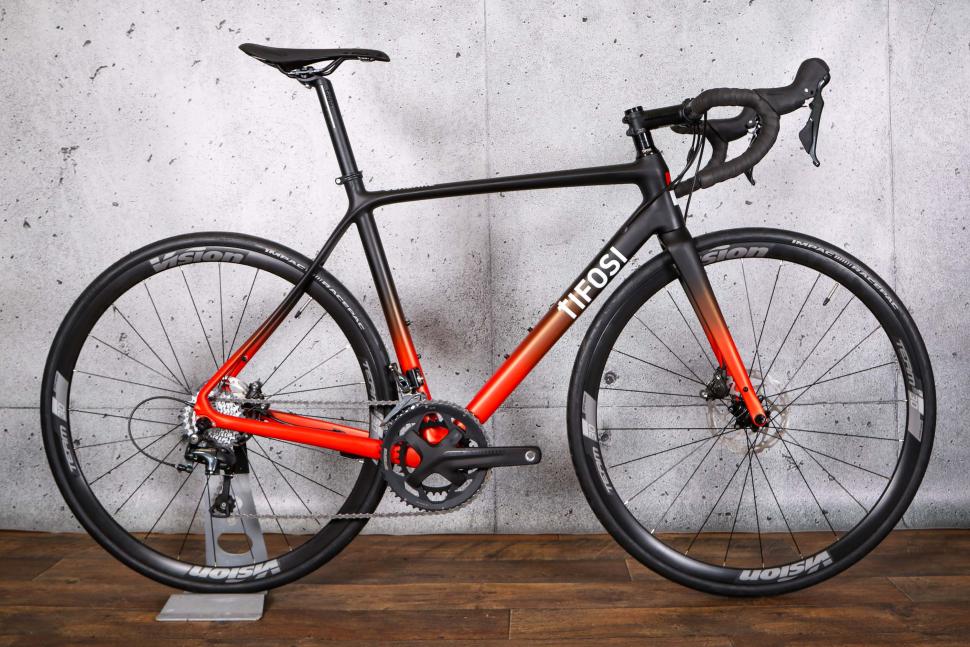
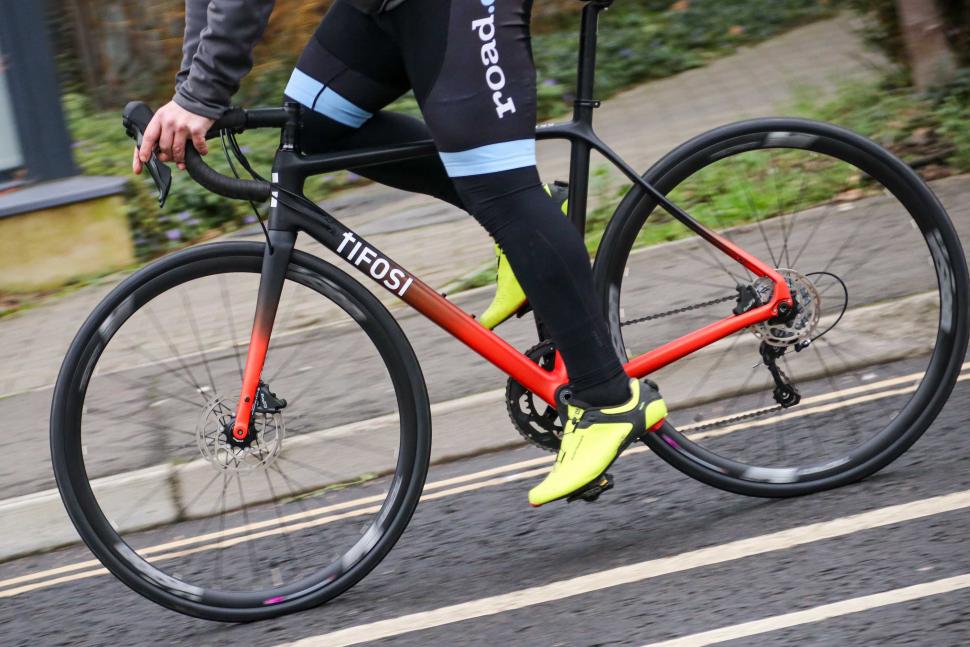
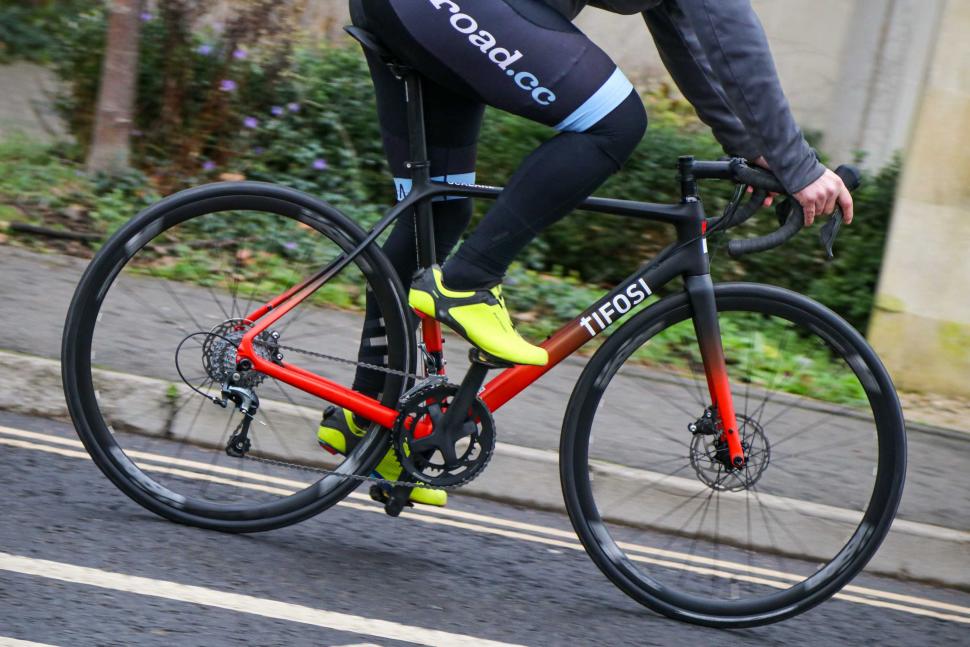






































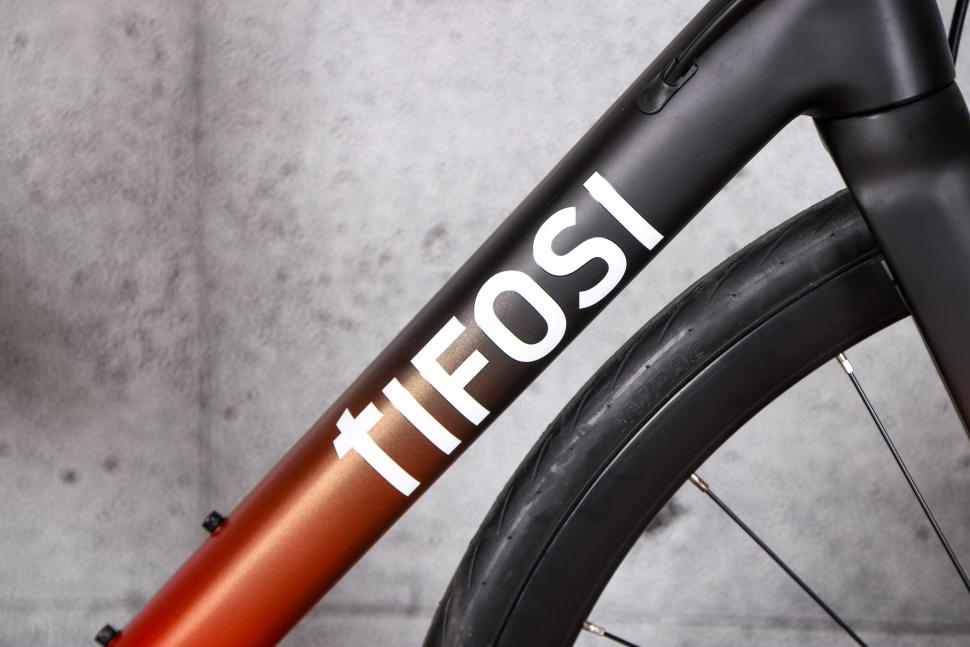
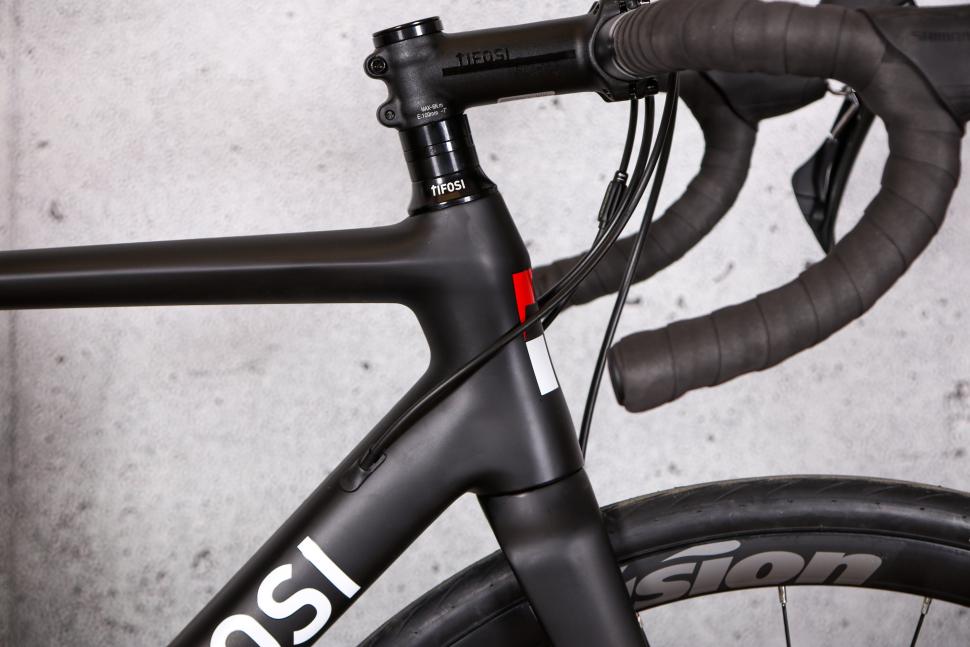
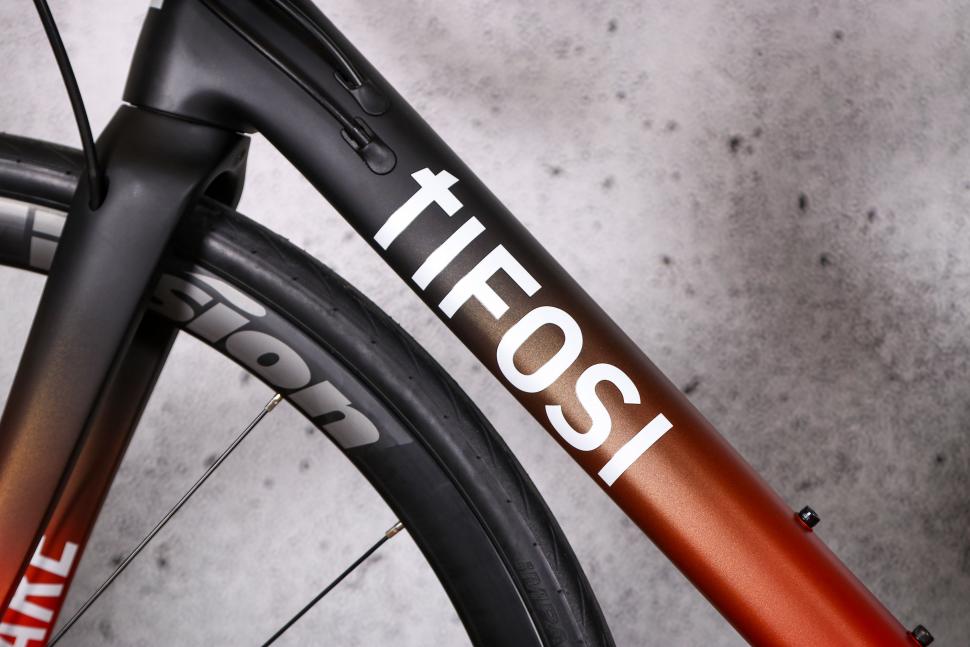
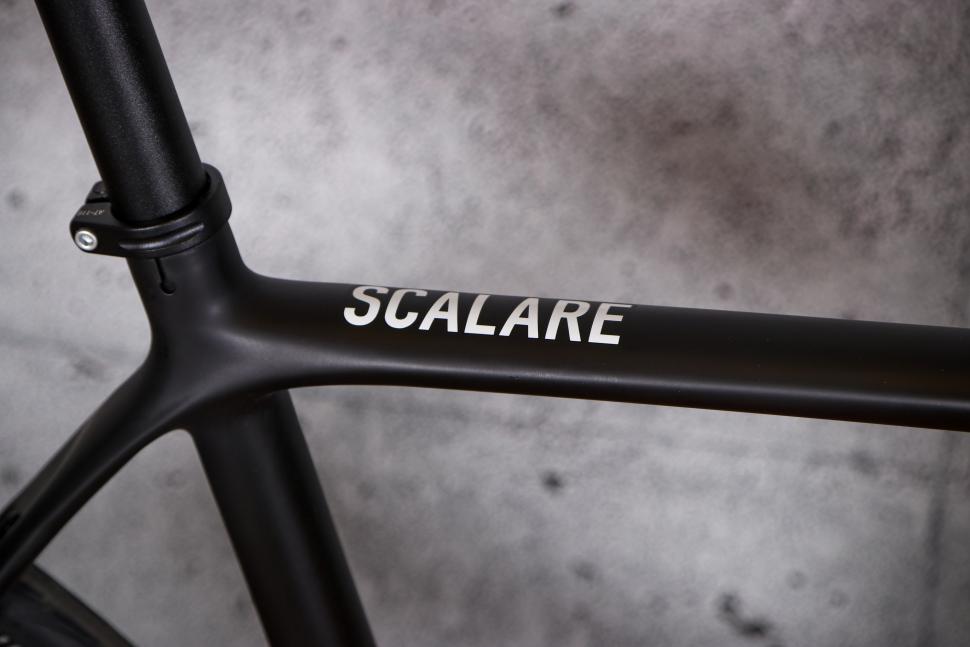
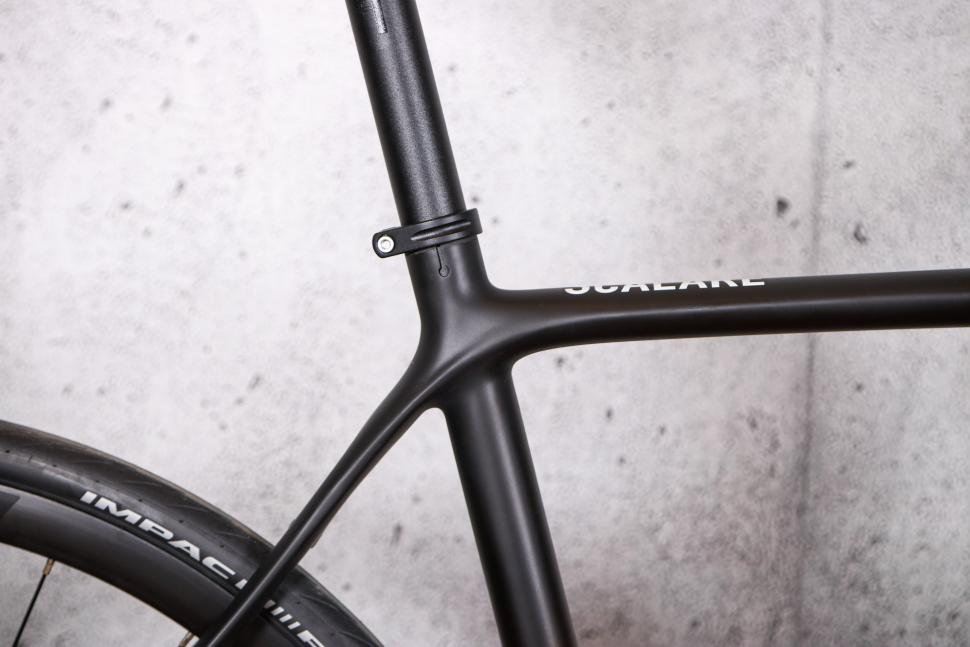
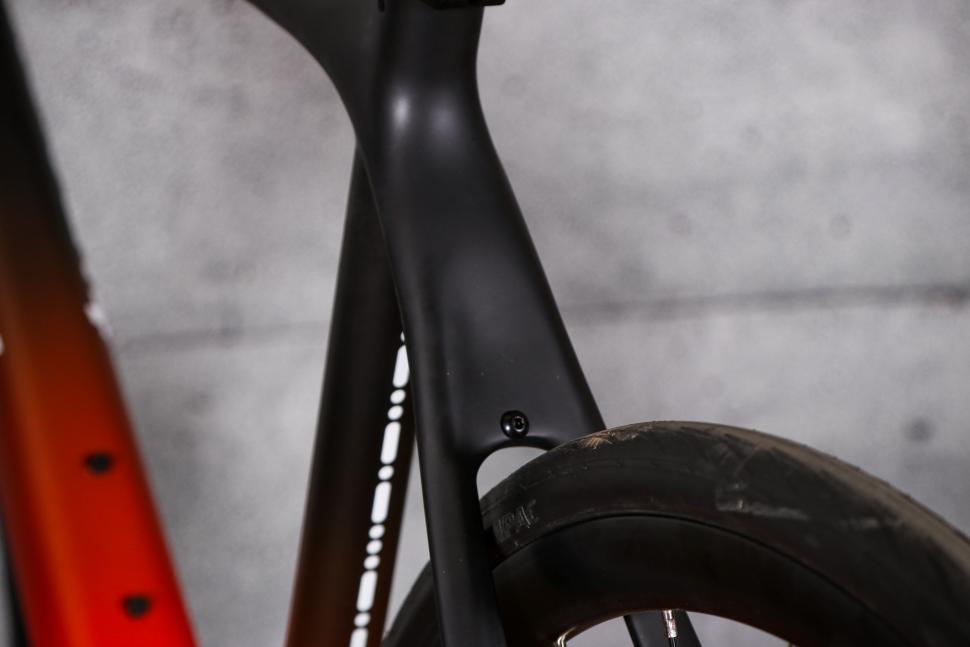

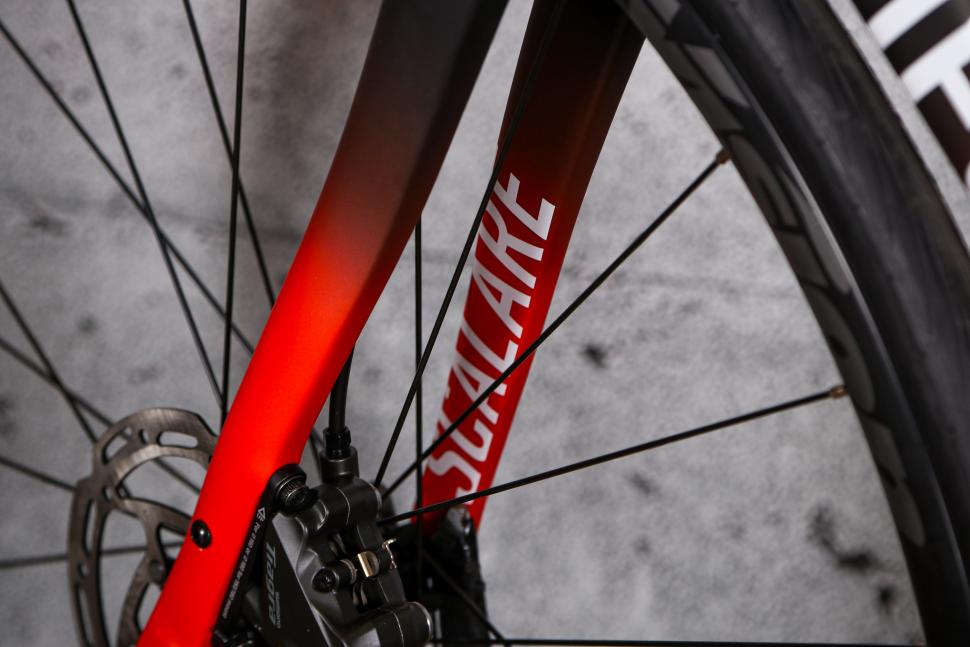
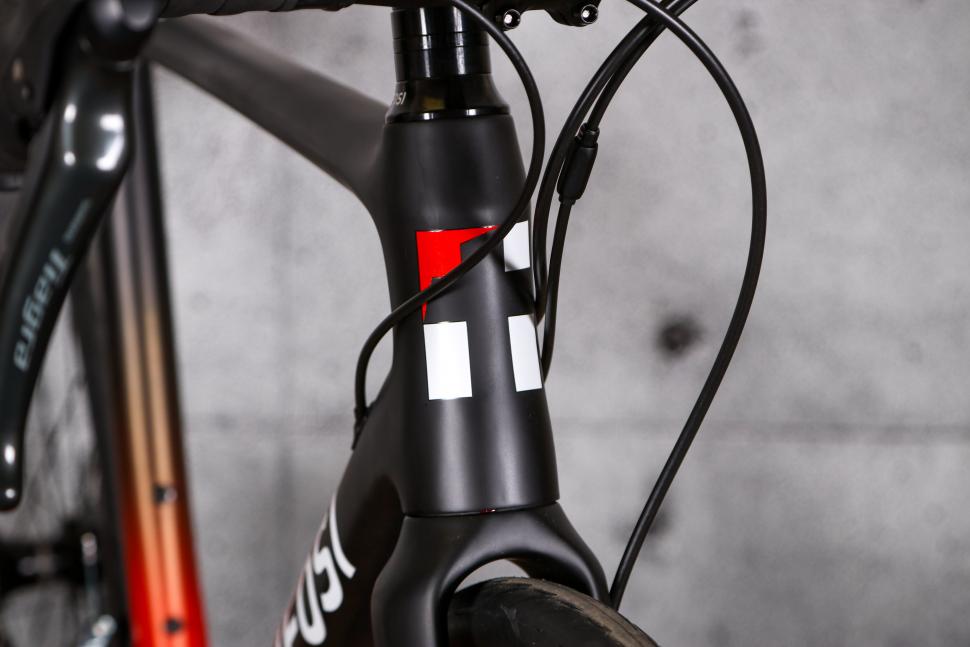
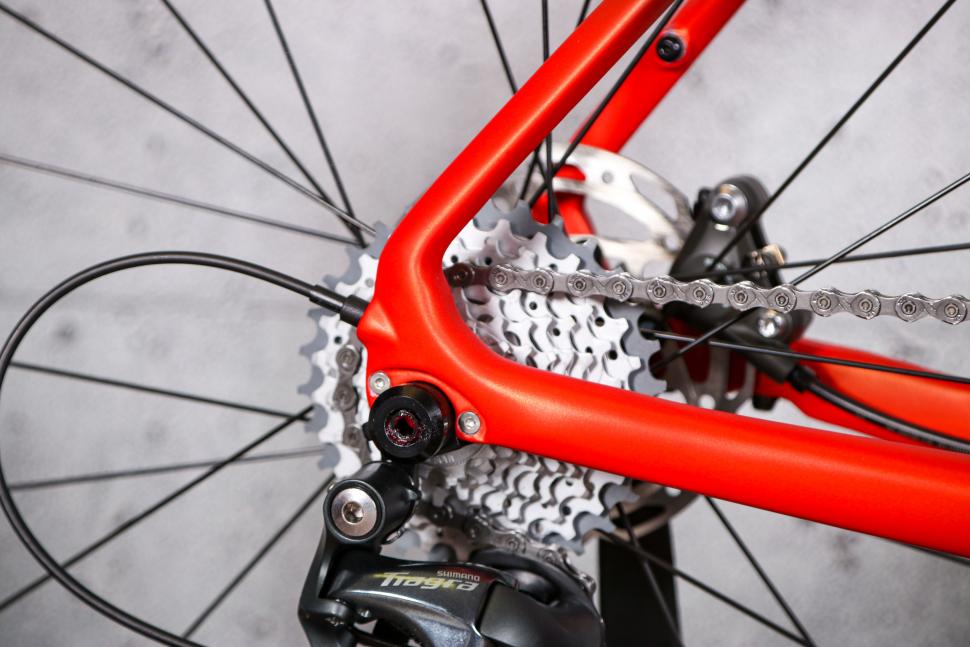
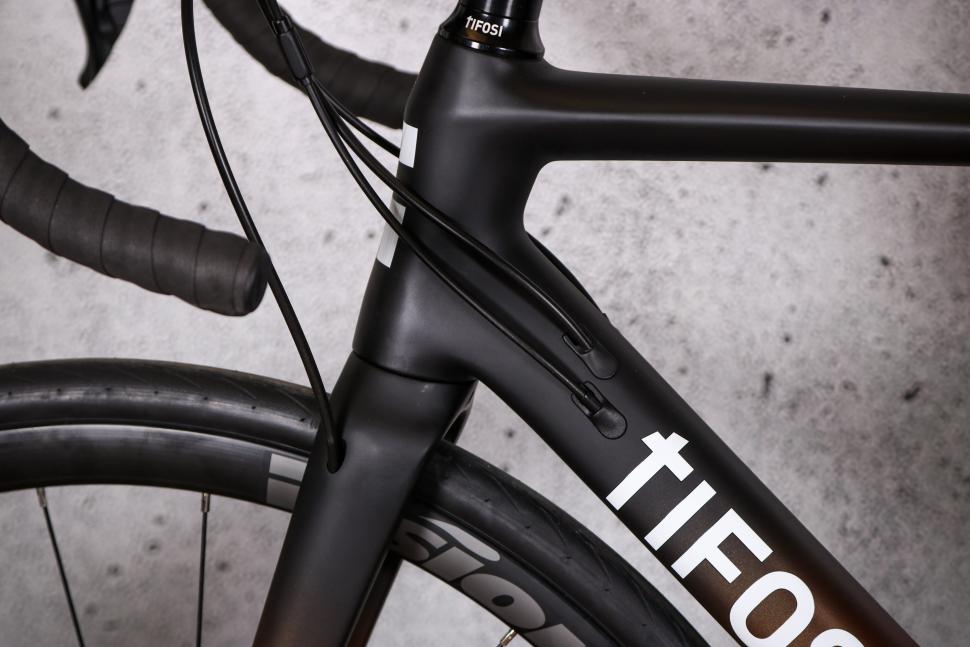
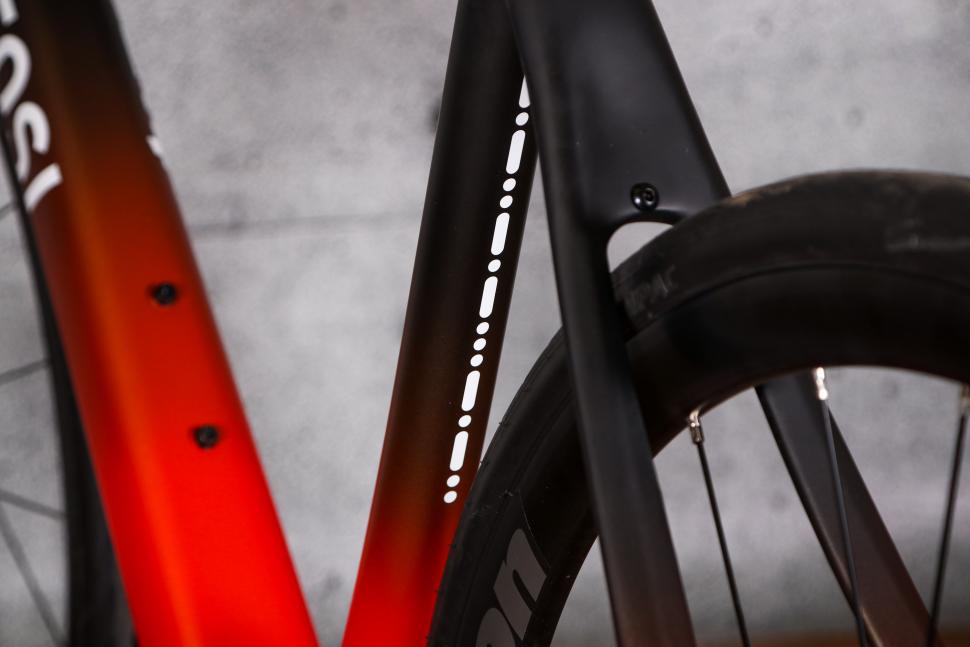
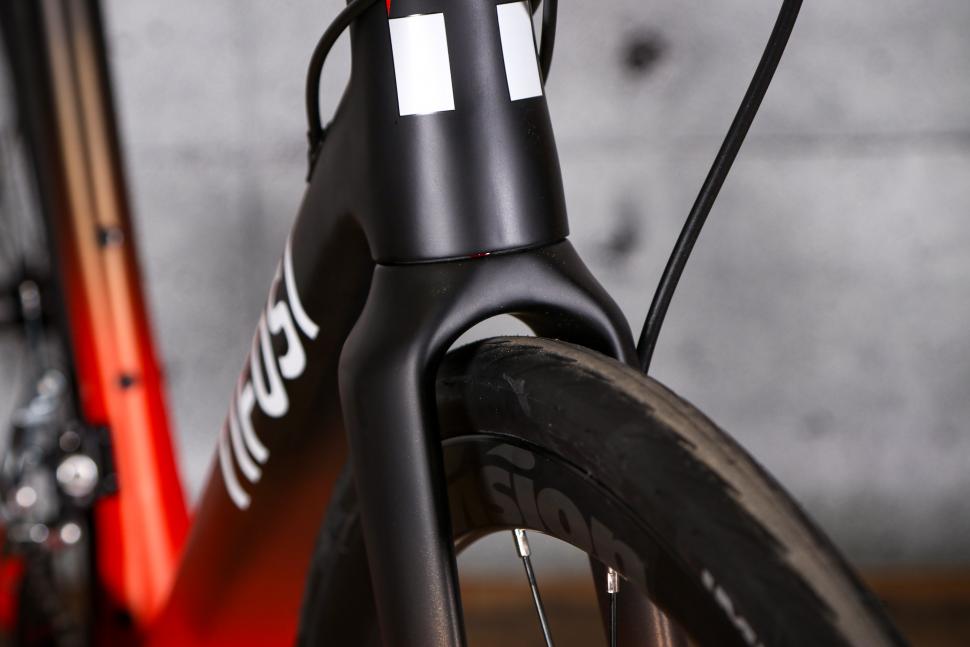
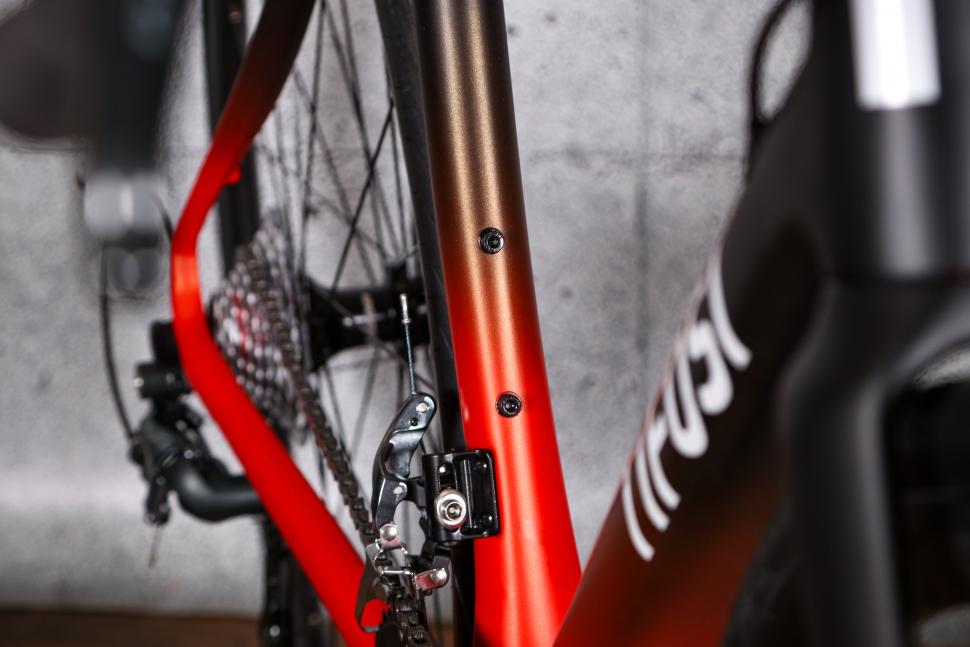
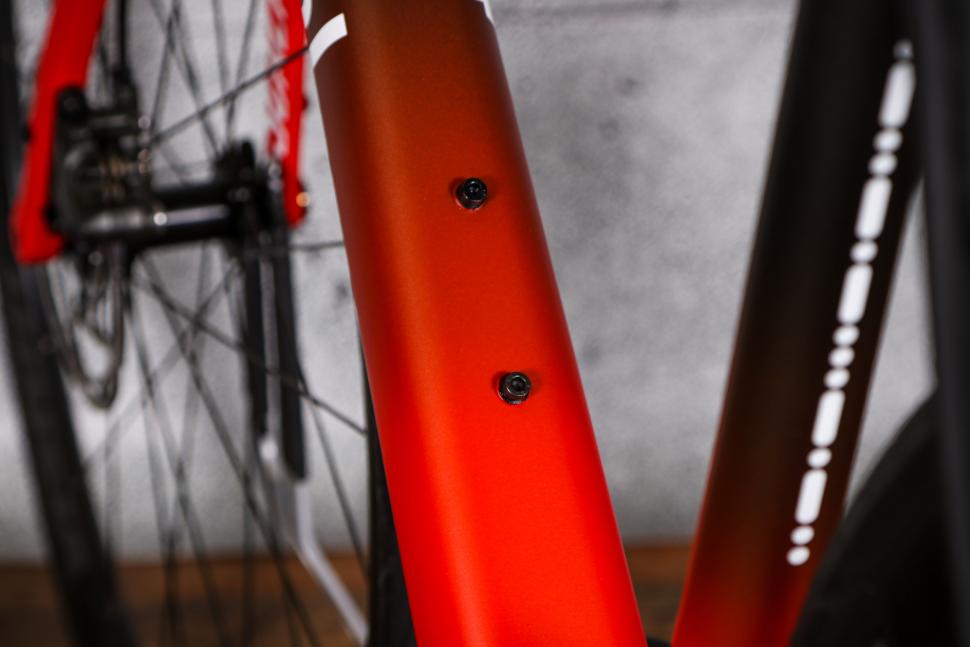
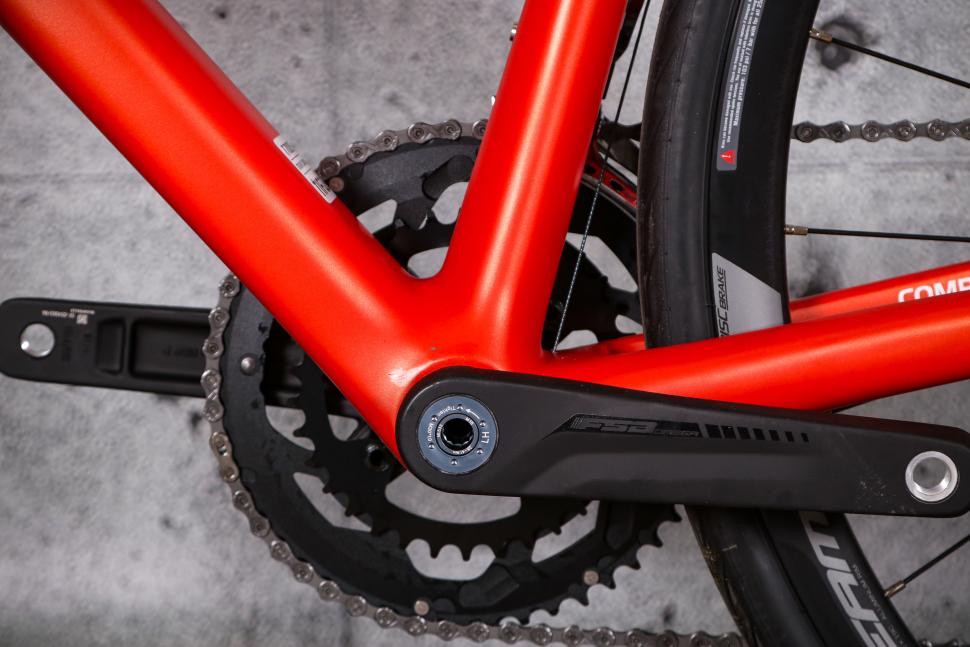
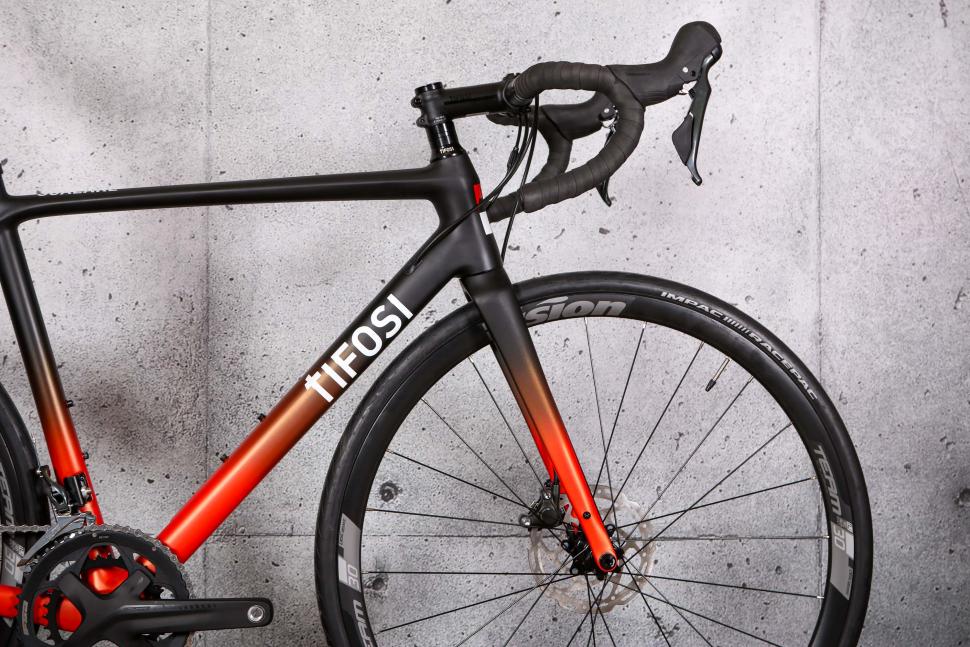

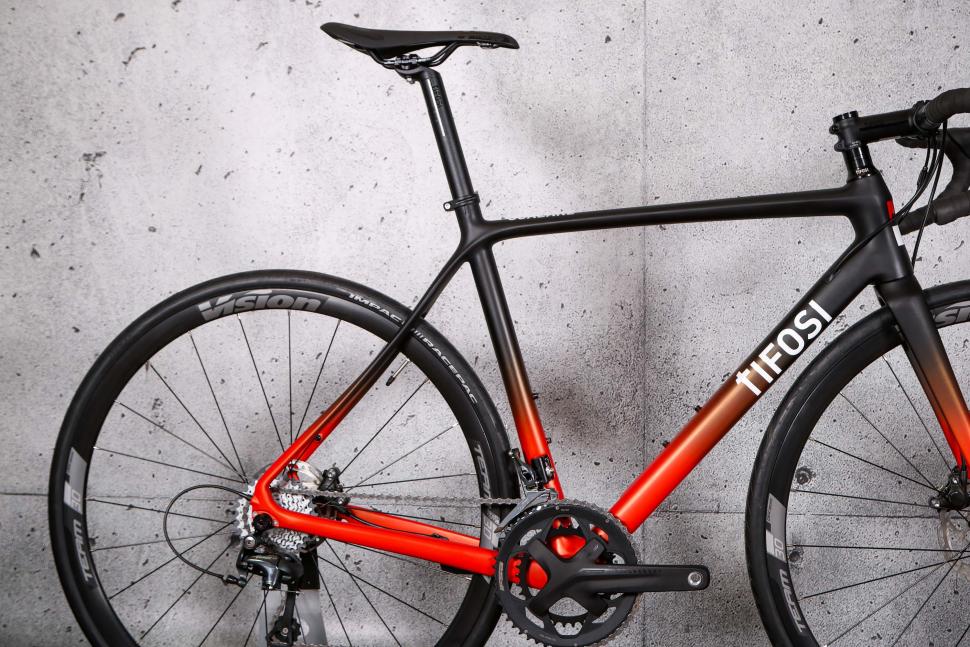
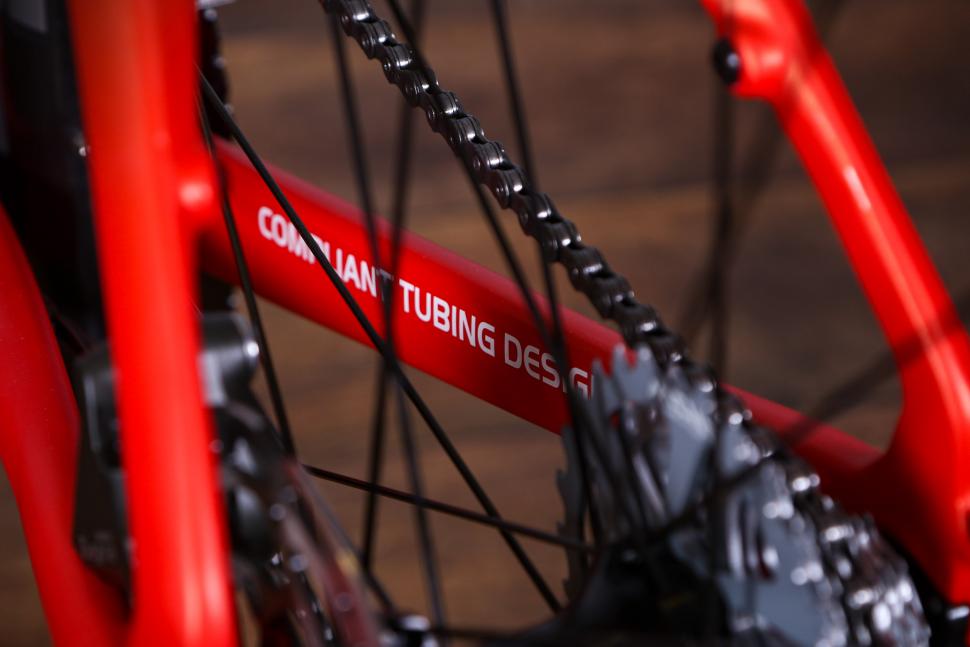


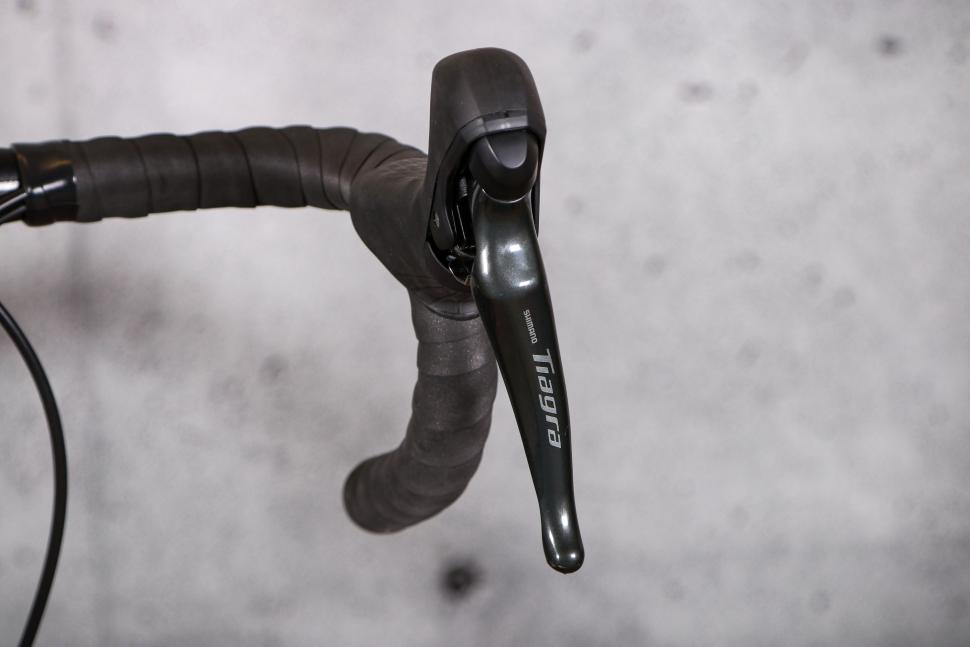
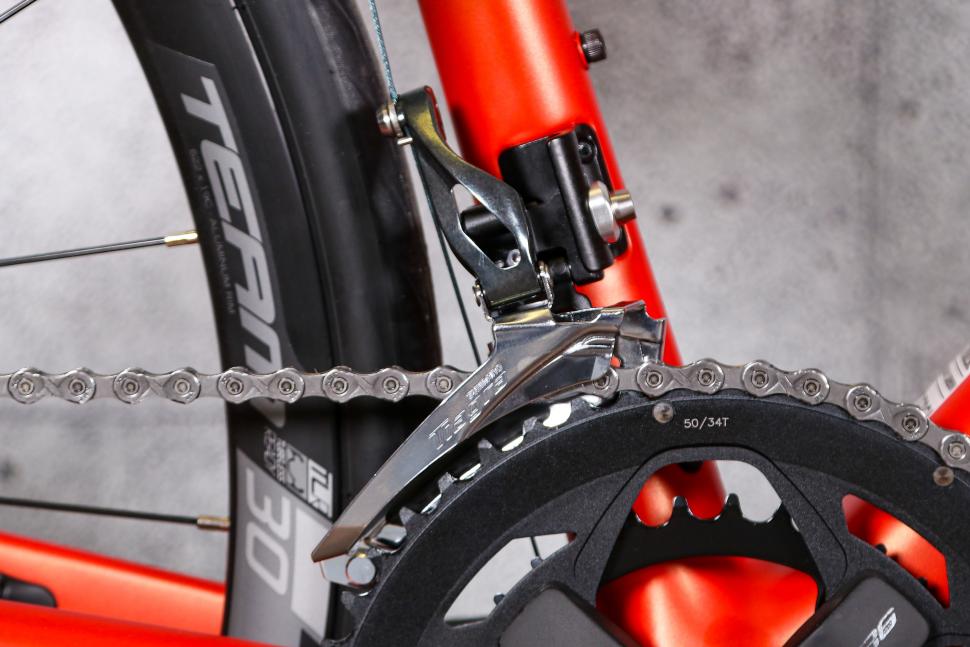
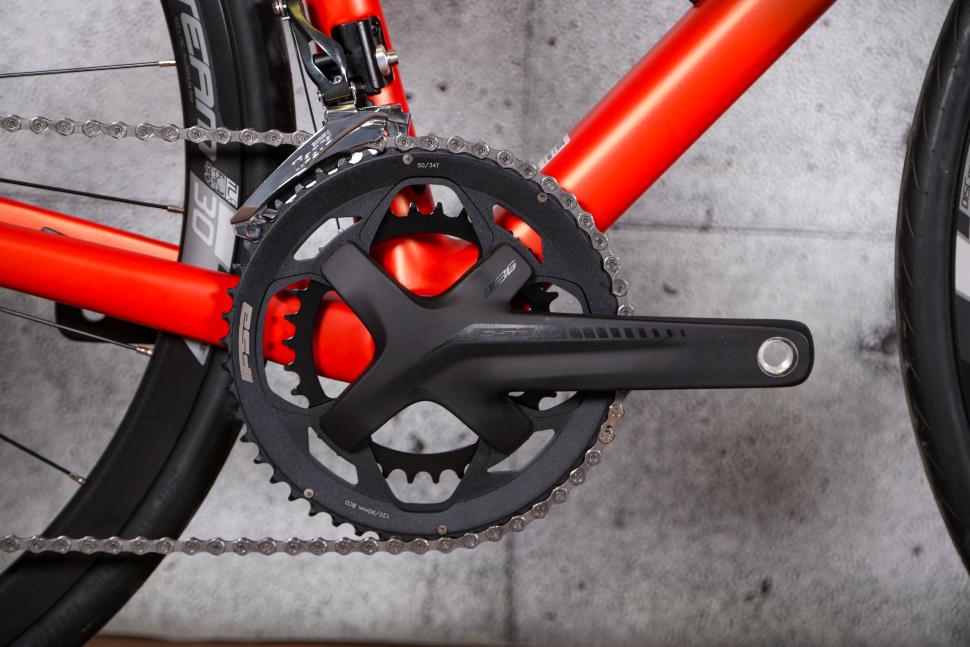
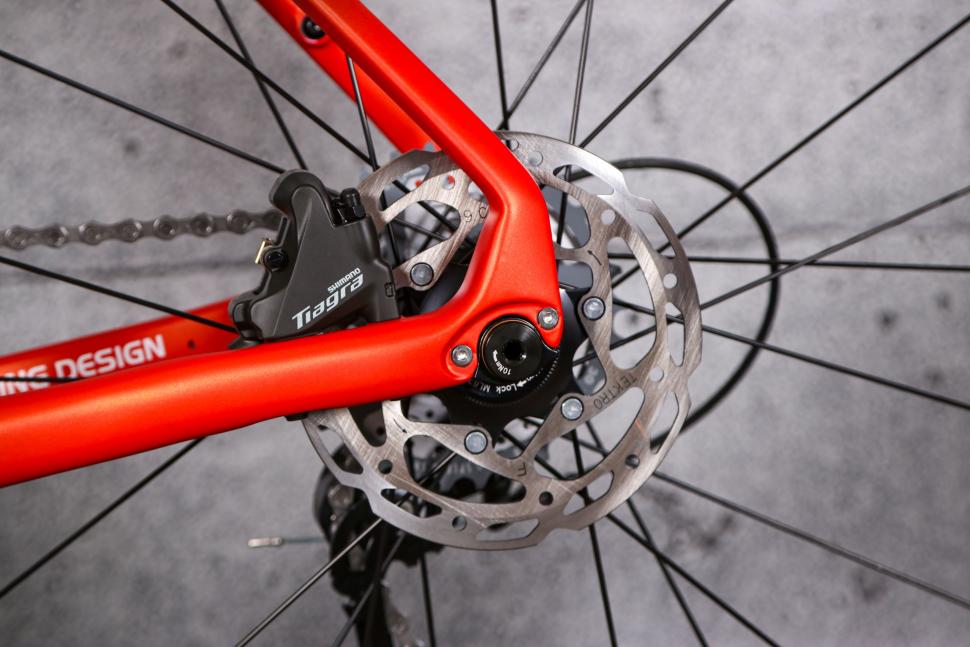
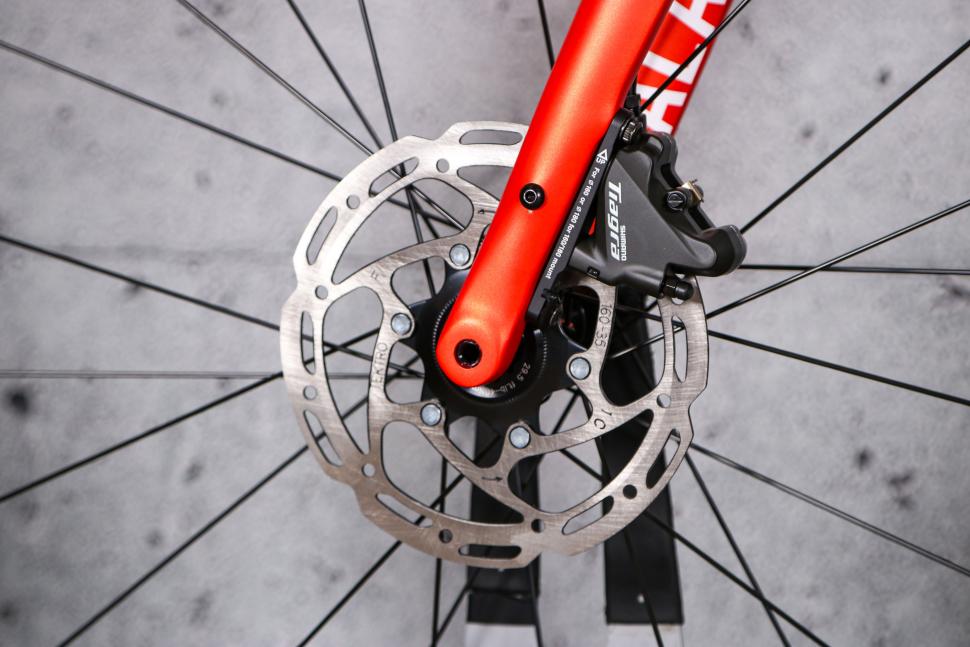

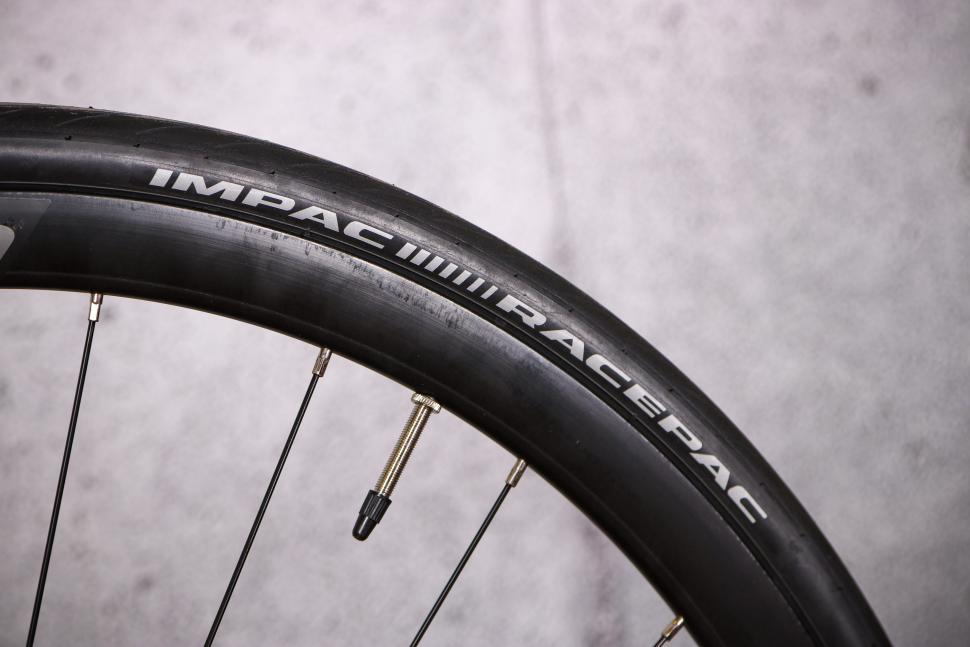
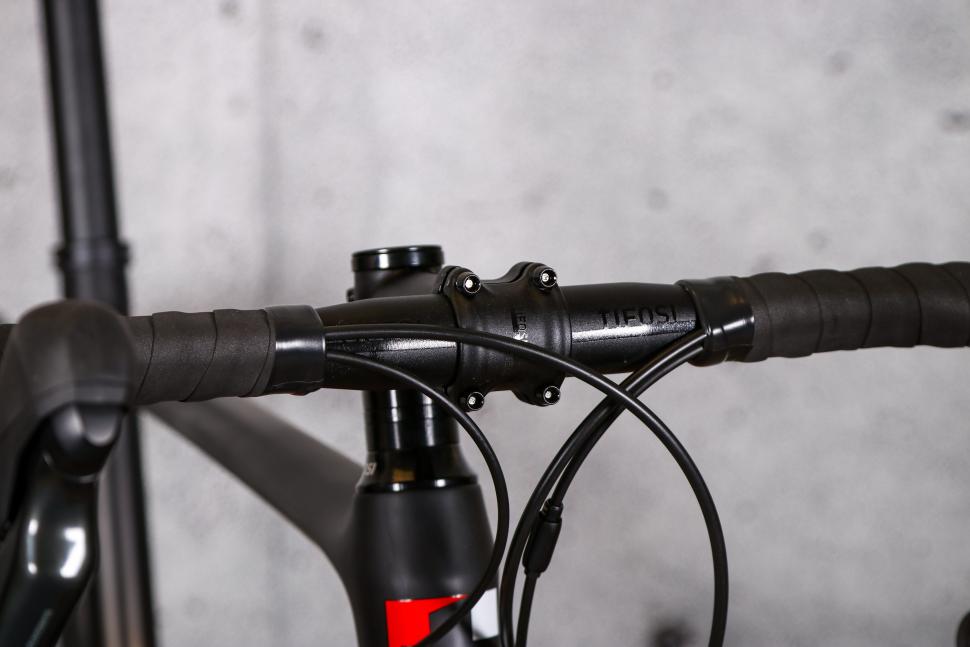
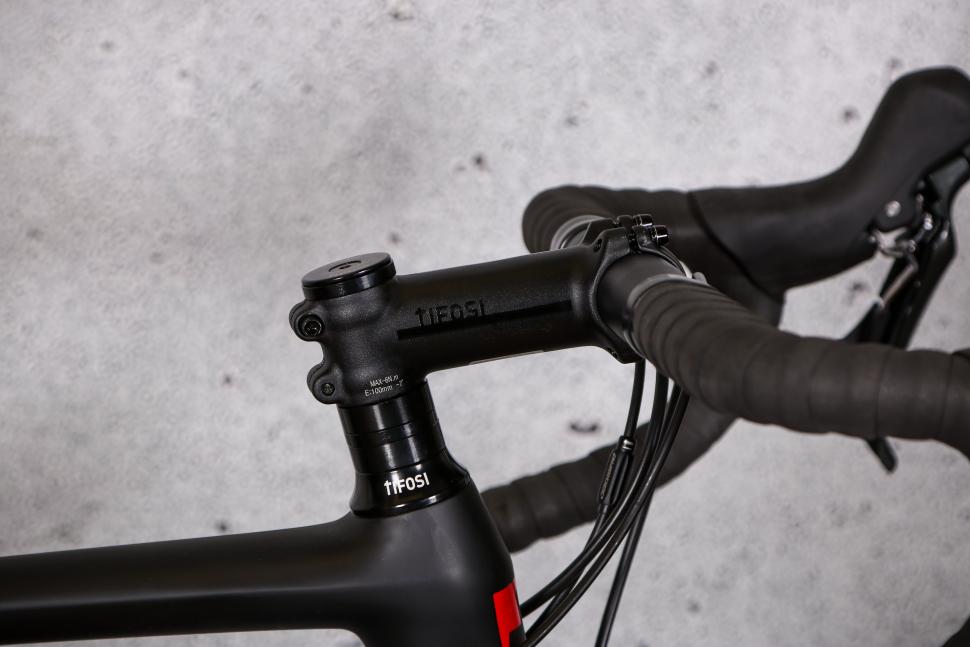
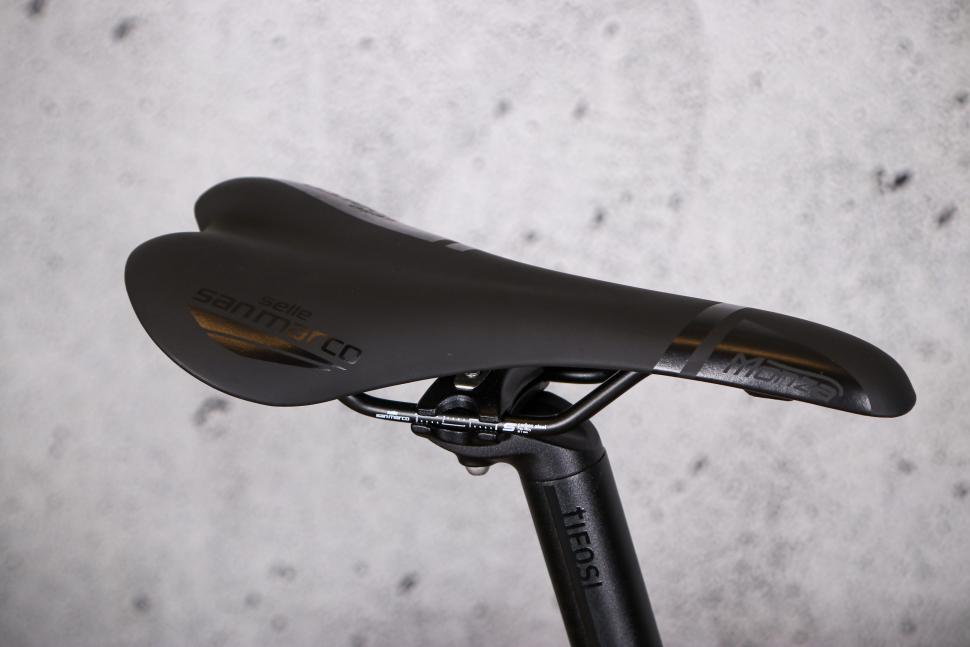
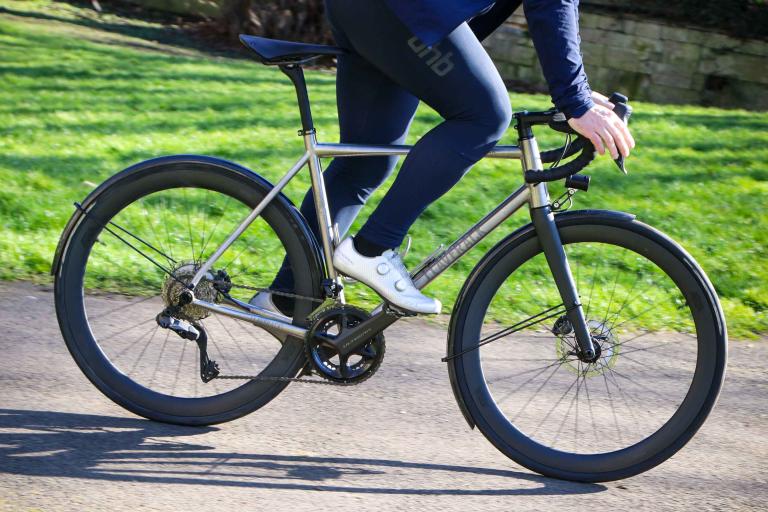
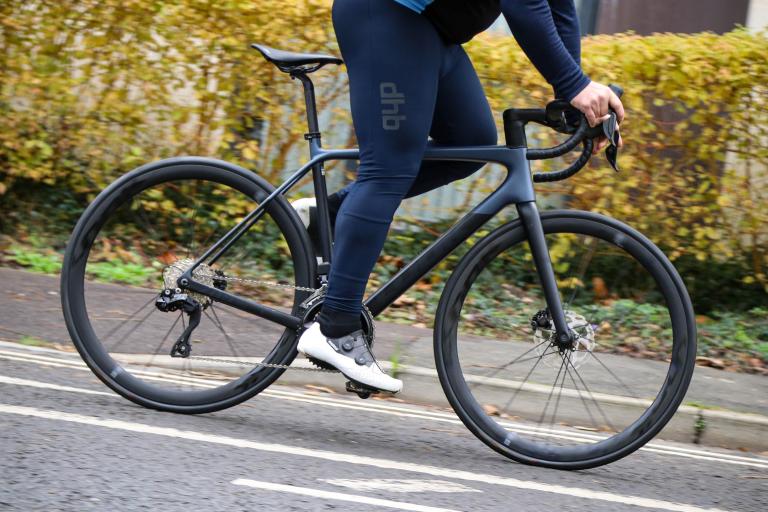
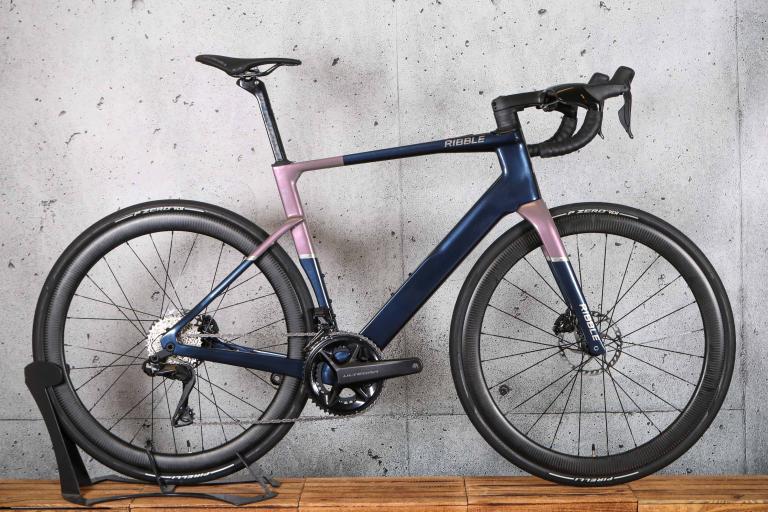
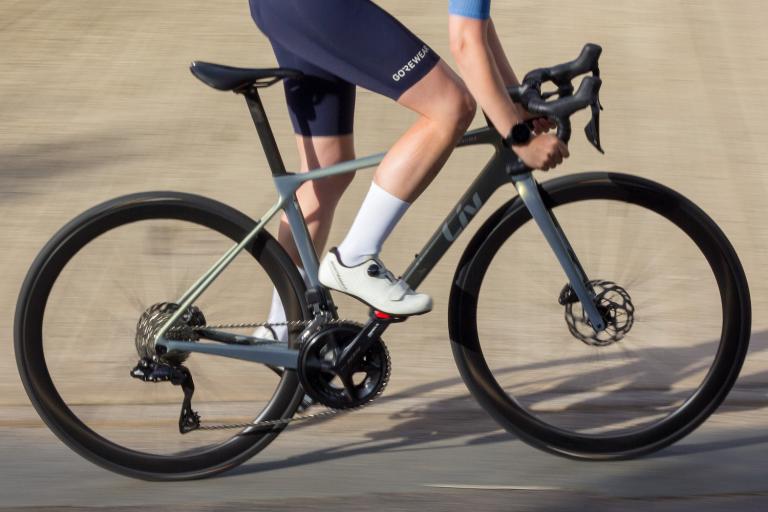
Add new comment
4 comments
£2000 for Tiagra...
I don't want to sound like a grumpy old man, but Boardman we're knocking out this sort of bike for £750 not so long ago.
Carbon frame ? I thought their carbon road bikes were over the 1k mark even nearly 10 years ago, and wouldnt have had disc brakes, as I remember they werent an option under the cycle 2 work scheme, when I was looking at a bike to buy.
Or a Canyon AL 6 Tiagra for £1,199 and about the same weight or AL 7 105 for £1,449 but lighter or CF 7 with 105 for £1,949 and lighter still.